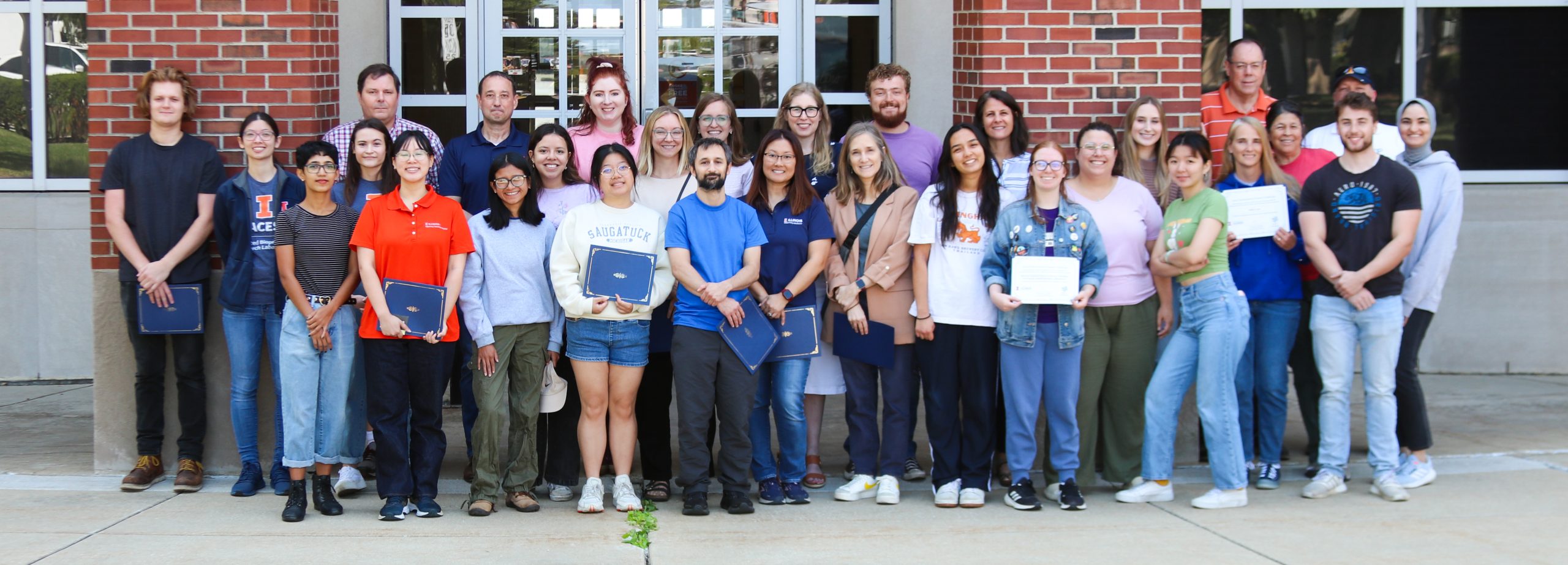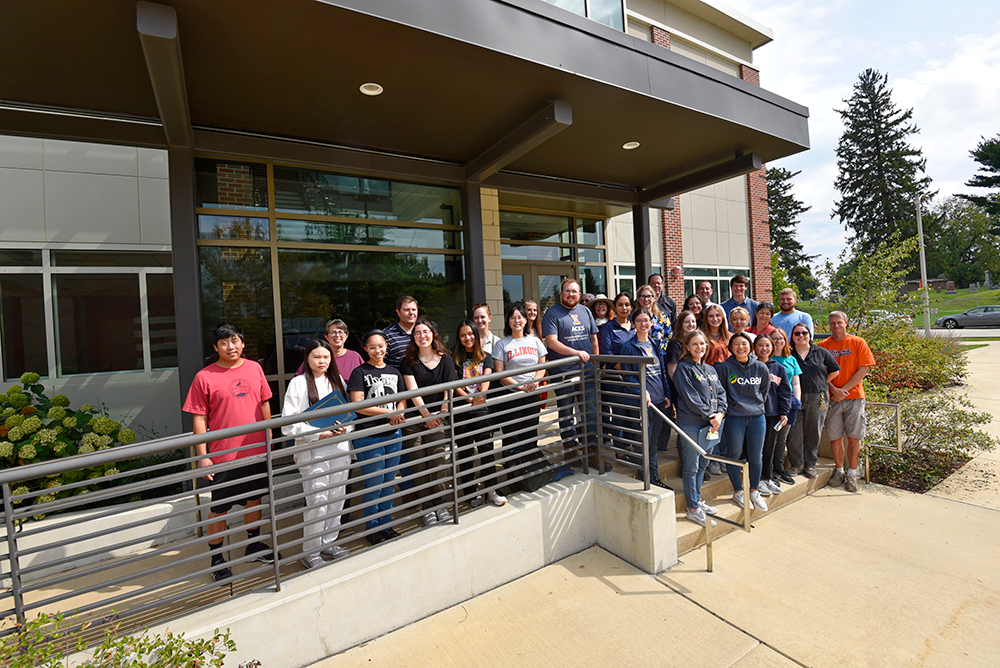International Laboratory Freezer Challenge

The International Laboratory Freezer Challenge is a free competition designed to promote energy efficiency through best practices in lab cold storage management. Since its inception in 2017, the program has saved a total of 76.8 million kWh (through 2025), making it a key driver of sustainable laboratory practices. This remarkable growth signals a strong and accelerating commitment within the scientific community to embrace energy efficiency and sustainability, showcasing the transformative power of small yet meaningful changes.
The Freezer Challenge at the University of Illinois Urbana-Champaign is focused on engaging, educating, and motivating researchers, faculty, staff, and students to promote the best lab-management sample-storage practices and leadership in environmental stewardship.
The university started by participating in the 2016-2017 academic year and has been honored eight times (three first place, one second place, three “Winning Streak”, and one honorable mention) in the academic category.
2025 Second Place!
In 2025, the university earned a Second Place Award in the ‘Academic’ sector. 103 laboratory groups combined to save 575 kWhs/day or 209,985 kWHs/year, measuring to 147.83 metric tons CO2/year reduced.
Top Performing Labs
| U. of I. Laboratories (2025) | Energy Points* |
| 1. Julie Nguyen-Edquilang — VetMed Shared Labs (Veterinary College of Medicine) | 63.00 |
| 2. Julia Neumann — Wildlife Veterinary Epidemiology Laboratory (Prairie Research Institute – Illinois Natural History Survey) | 61.10 |
| 3. Marcia Siegel — Donovan Laboratory (Food Science & Human Nutrition) | 58.00 |
| 4. Mary Durstock — Ainsworth Laboratory | 56.10 |
| 5. Kim Laboratory (Physics) | 43.30 |
| 6. McGrath Laboratory (Plant Biology) | 43.00 |
| 7. Dietrich Leafhopper Laboratory (Illinois Natural History Survey) | 41.00 |
| 8. Chance Riggins — Riggins Laboratory (Crop Sciences) | 38.85 |
| [HM] Amengual Laboratory | 33.00 |
| [HM] Carl Bernacchi Laboratory — (Crop Sciences) | 32.50 |
| [HM] Julie Nguyen-Edquilang — Stewart Laboratory | 32.30 |
| [HM] Thomas Christian McElrath, Michelle Kohler — Thomas Christian McElrath Laboratory (Illinois Natural History Survey) | 29.00 |
Key Actions Taken
| Action Items (2025) | Impacts |
| Freezers retired | 18 |
| ULT Freezers “Chilled Up” to -70 degrees Celsius | 20 |
| Freezer units entered | 156 |
| Freezers upgraded to more efficient units | 20 |
| Freezers and refrigerators front doors brushed of frost | 155 |
| Units defrosted and cleaned coils/filters | 159 |
| Freezers with samples removed/cleaned since August | 272 |
| Room temperature sample storage (RTSS) for kits and reagents (DR + DU) | 23 |
| Standard freezer boxes converted to high density boxes | 360 |
| Units with remote inventory monitoring systems | 78 |
| Freezer units shared among multiple labs | 42 |
| Freezers and refrigerators defrosted | 156 |
| Units with bar coded inventory | 9 |
| Number of samples discarded since August 2024 | 3,677,000 |
How the Freezer Challenge Works
From January through July, researchers filled out scorecards to earn points for implementing cold management storage best practices that improve energy efficiency, reduce costs, and protect sample integrity. Techniques being used consistently in labs across campus include:
- Regularly managing and organizing samples to avoid overcrowding and reduce the number of cold storage units needed
- Defrosting units to prevent the buildup of ice
- Washing and replacing filters as recommended by the manufacturer’s guidelines, vacuuming condenser coils, and removing any debris that potentially blocks heat exchange
- Checking doors and component seals to prevent the loss of conditioned air
- Performing regular equipment checks and scheduling preventive maintenance
- Barcoding and tracking sample inventory, utilizing room temperature storage techniques, and sharing space to increase efficiency
- Reducing overall space utilization also lowers greenhouse gas emissions

